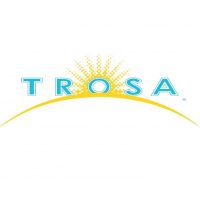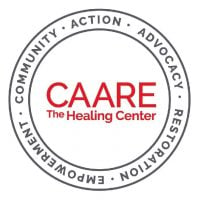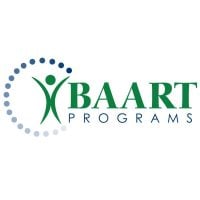Durham Council on Alcoholism and Drug Dependence
Drug Rehab Center in Durham, North Carolina
- Substance Abuse
- Opioid Addiction
- Drug Addiction
- Alcoholism
Durham Council on Alcoholism and Drug Dependence is a nonprofit organization that offers tailored drug and alcohol addiction treatments, including individual counseling, drug rehab, and outpatient programs, with the goal of helping patients become independent and productive members of the community.
Multiple patients have reported Durham Council on Alcoholism and Drug Dependence as permanently closed.
Research other rehabs in Durham, North Carolina, or get help finding an open facility.
Our experts will find you an alternative facility.
(888) 674-0062 24/7 Free, Confidential, Expert HotlineAbout Durham Council on Alcoholism and Drug Dependence in North Carolina
Durham Council on Alcoholism and Drug Dependence is a nonprofit organization that provides drug and alcohol addiction treatments in Durham, NC. They offer a range of services, including individual counseling, drug rehab, and outpatient programs that are tailored to the individual’s needs. During the intake process, a qualified staff member will evaluate the patient, ascertain their needs, and then craft a personalized treatment plan which may include individual and group counseling, drug rehab and long-term residential programs. The goal of the patient’s program is to move them gradually towards independence and help them become productive members of the community.
Durham Council on Alcoholism and Drug Dependence helps those with alcohol abuse, opioid addiction, and other substance abuse issues. The organization offers a safe and supportive environment where patients can get the help they need to gain control over their addiction. They have a team of qualified counselors, therapists, and medical professionals who provide evidence-based treatments including cognitive-behavioral therapy and mindfulness-based stress reduction. Patients can also access support groups and resources to help them maintain their progress after completing their treatment program.
Genders
Ages
Modality
Additional
Conditions and Issues Treated
A combination of treatments is often needed to treat drug abuse. Some addictions can be treated with counseling and support groups. In other cases, drug abuse can lead to a medical problem and require medical treatment. Treatment for drug addiction typically combines counseling and psychotherapy with medication and behavioral therapies.
A combination of treatments is often needed to treat drug abuse issues effectively. In the case of drug abuse, there is no easy answer or one-size-fits-all cure.
Opioid addiction has become a significant health problem in the United States. In 2015, there were 91 opioid overdose-related deaths per day, with a substantial increase in mortality rate in 2014.
When opioid addiction has reached a point where a person’s life becomes unmanageable, treatment options are available to help them get sober. Treatment that includes medical care with medications and counseling can help a user transition into sobriety.
Levels of Care Offered
This center offers a variety of custom treatment tailored to individual recovery. Currently available are Drug Rehab, Outpatient, with additional therapies available as listed below.
Outpatient treatment is often used for drug addicts in drug rehab. Outpatient treatment consists of counseling and therapy sessions. This form of treatment is also called ‘day-treatment’. The outpatient treatment process begins with the addict’s initial detox period, lasting about ten days.
Outpatient treatment is used for those who are at moderate risk for ‘slipping back’ into the addiction, for those who:
- Are not currently experiencing any side effects from withdrawal and can handle social pressure
- Can handle stressors that might trigger relapse
- Have a stable living environment or have moved out of their previous environment, which was not conducive to being sober
- Have a support system that allows them to go to a facility a few times a week while still keeping their current responsibilities
- Have no legal obligations, being either on parole or probation, that require them to seek treatment at a mandatory facility
- Are not currently experiencing any side effects from withdrawal and can handle social pressure
- Have a stable living environment or have moved out of their previous environment, which was not conducive to being sober
Therapies & Programs
Because no single treatment is effective for all addicts, the goal of treatment and therapy should be to figure out what works best for each individual. Tolerance and withdrawal levels differ from person to person, affecting the treatment intensity required. Addiction treatment should aim to help addicts develop healthy coping mechanisms for dealing with their addiction and its underlying causes.
Additional Details
Specifics, location, and helpful extra information.
Durham, North Carolina 27707 Phone Number(919) 493-3114 Meta DetailsUpdated November 25, 2023
Staff Verified
Durham Council on Alcoholism and Drug Dependence Patient Reviews
There are no reviews yet. Be the first one to write one.
Durham, North Carolina Addiction Information
North Carolina ranks 29th in the nation for overall substance abuse. Many of the drugs abused in the state are illicit, and many of these are opioids. Prescription opioids are readily available due to the high rates of medical workers prescribing them. The number of prescriptions has increased tenfold since the 1980's. Opioid overdoses are the most common type of death in North Carolina.
Over 8% of the population in Durham abuses drugs, and this number continues to rise. Prescription opioids, heroin, and cocaine are the most commonly abused drugs in the city. Marijuana is also a problem, with many people using it as their first drug. About 26% of HIV/AIDS cases are attributed to injection drug use. Local officials have started to offer various programs to help those affected by addiction.
Treatment in Nearby Cities
- Kinston, NC (90.8 mi.)
- Roxboro, NC (29.5 mi.)
- Richlands, NC (108.0 mi.)
- Marshall, NC (209.9 mi.)
- Sparta, NC (127.0 mi.)
Centers near Durham Council on Alcoholism and Drug Dependence



The facility name, logo and brand are the property and registered trademarks of Durham Council on Alcoholism and Drug Dependence, and are being used for identification and informational purposes only. Use of these names, logos and brands shall not imply endorsement. RehabNow.org is not affiliated with or sponsored by Durham Council on Alcoholism and Drug Dependence.


